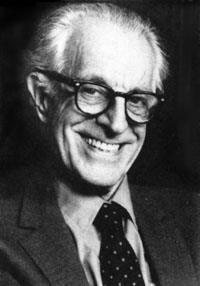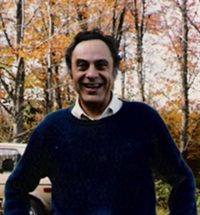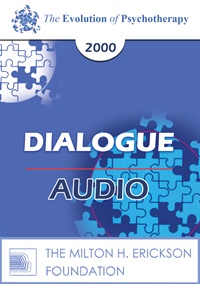EP00 Dialogue 02 - The Therapeutic Relationship - Albert Ellis, PhD, and Eugene Gendlin, PhD
- Average Rating:
- Not yet rated
- Topic Areas:
- Psychotherapy | Dialogues | Therapeutic Relationship | Therapist Development
- Categories:
- Evolution of Psychotherapy | Evolution of Psychotherapy 2000
- Faculty:
- Albert Ellis, PhD | Eugene Gendlin, PhD
- Duration:
- 55 Minutes
- Format:
- Audio Only
- Original Program Date:
- May 27, 2000
- License:
- Never Expires.
Description
Description:
Educational Objectives:
- Given a topic, to become aware of the differing approaches to psychotherapy, and to identify the strengths and weaknesses in each approach.
*Sessions may be edited for content and to preserve confidentiality*
Credits
Faculty

Albert Ellis, PhD Related Seminars and Products
Albert Ellis, PhD, was an American psychologist who in 1955 developed Rational Emotive Behavior Therapy (REBT). He held M.A. and Ph.D. degrees in clinical psychology from Columbia University and American Board of Professional Psychology (ABPP). He also founded and was the President of the New York City-based Albert Ellis Institute for decades.
He is generally considered to be one of the originators of the cognitive revolutionary paradigm shift in psychotherapy and one of the founders of cognitive-behavioral therapies.[2]
Based on a 1982 professional survey of US and Canadian psychologists, he was considered as the second most influential psychotherapist in history (Carl Rogers ranked first in the survey; Sigmund Freud was ranked third).[3][4] Psychology Today noted, "No individual—not even Freud himself—has had a greater impact on modern psychotherapy."[5]

Eugene Gendlin, PhD Related Seminars and Products
Eugene T. Gendlin, PhD, is an American philosopher and psychotherapist who developed ways of thinking about and working with living process, the bodily felt sense and the 'philosophy of the implicit'. Gendlin received his Ph.D. in philosophy in 1958 from the University of Chicago where he became an Associate Professor in the departments of Philosophy and Psychology.
His philosophical work is concerned especially with the relationship between logic and experiential explication. Implicit intricacy cannot be represented, but functions in certain ways in relation to philosophical discourse. The applications of this "Philosophy of the Implicit" have been important in many fields.
His philosophical books and articles are listed and some of them are available from this web site. They include Experiencing and the Creation of Meaning, (in paperback) and Language Beyond Post-Modernism: Saying and Thinking In Gendlin's Philosophy (edited by David Levin) , both from Northwestern University Press, l997 and A Process Model.


